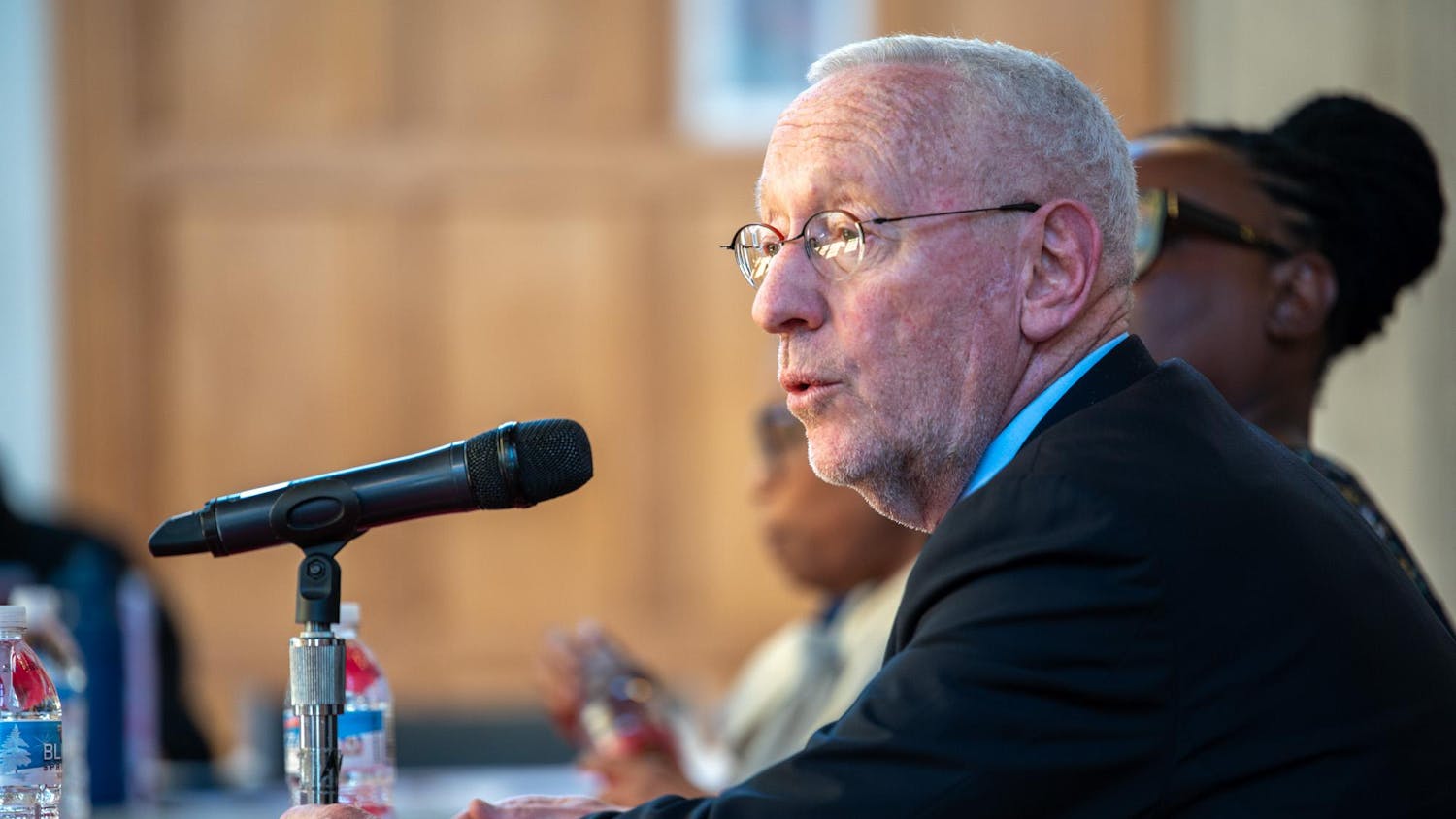You’ve done everything — your classwork is all finished, your apartment is looking spiffy, every item on your to-do list has been crossed off with confidence. You’re positively thriving, and with this dazzling productivity, you’re motivated to get a bit of exercise today as well. So, you toss on your workout clothes and head to Teagle to get a quick lift in before dinner. You walk all the way there, shivering a bit in the chilly weather, and tug on the door handle to get inside. But Teagle is closed. It closes at 7 p.m.
Your perfect, efficient day is no longer quite so perfect and efficient, but, undeterred, you trudge onward to Noyes. You shiver more on this second walk while the frigid wind on the slope laughs at your meager attire. Finally, you make it to Noyes. It’s open, thank God, and you galavant inside, overjoyed to finally lift heavy things. Of course, Noyes is packed to the rafters with students. There’s not a single machine available. The free-weights section looks like Level B during fishbowls. Even all the cardio machines are taken. So, you engage in the time-old tradition of working out for 20 minutes and then giving up because there are just too many people.
Cornell needs to do a better job of making its fitness centers accessible to students. From the fact that Cornell charges students for its gyms to the overcrowding at many locations, the system puts up far too many roadblocks for students to be able to exercise with ease and regularity. Creative solutions have previously been proposed, such as one idea put forward by fellow opinion columnist Roei Dery ‘23, but to solve the problem of overcrowding, particularly at Noyes, Cornell should build a gym in the one place remaining with many students and no nearby fitness center: Collegetown.
Currently, there are two fitness centers on North (Helen Newman and Toni Morrison), one fitness center on Central (Teagle) and one on West (Noyes). This sufficiently covers students living on-campus with convenient access for students living on North and West as well as for athletes, who primarily work out at Teagle given its close location to many other athletic facilities. But it blatantly leaves Collegetown, where a majority of upperclassmen live, without any fitness center.
This creates roadblocks for Collegetown-residing students seeking to exercise. First, the brutal winter in Ithaca makes it difficult to get to a fitness center. It’s an enormous disincentive to work out when you have to stomp through snow and ice halfway across campus to get to a gym. Second, the fact that Noyes is the nearest gym open past 7 p.m. leads to overcrowding in that location, as it becomes the primary location for both West Campus and Collegetown residents. Consequently, students often grow frustrated with the wait times for their desired machines and uncomfortable with the large crowds. In a post-pandemic world now more attuned than ever to the transmission of airborne illness, many students aren’t too keen for their gym experience to be akin to an even sweatier mosh pit.
The reality is that with the many tasks facing a Cornell student every day, it’s easy for a student to neglect getting physical exercise. So, when additional barriers are layered onto the prospect of working out, it makes a student even less likely to stay in good physical health. Cornell has a fundamental responsibility to protect the health of its students, so it must prioritize limiting these barriers as much as reasonably possible. Building a fitness center in a location where an enormous number of students live is just about the bare minimum. It would expand access and decrease crowds at other fitness centers, creating a better experience for students and allowing more to exercise.
An even better outcome would be Cornell going further and also doing away with charging students for gym access. Dery said it best in his column earlier this semester: “The fact that Cornell charges for fitness centers communicates that they believe exercise is extra, not necessary, to combat mental health issues and support sustainable student lifestyles on campus.” The same message is sent by the woefully deficient number and size of the University’s fitness centers. It’s the wrong message to send to students, and if Cornell takes its commitment to the health of its student body seriously, it’ll take steps to ensure that fitness centers are easily accessible for all students.
Andrew V. Lorenzen (he/him) is a senior in the College of Arts and Sciences. He can be reached at alorenzen@cornellsun.com. When We’re Sixty Four runs every other Wednesday this semester.











